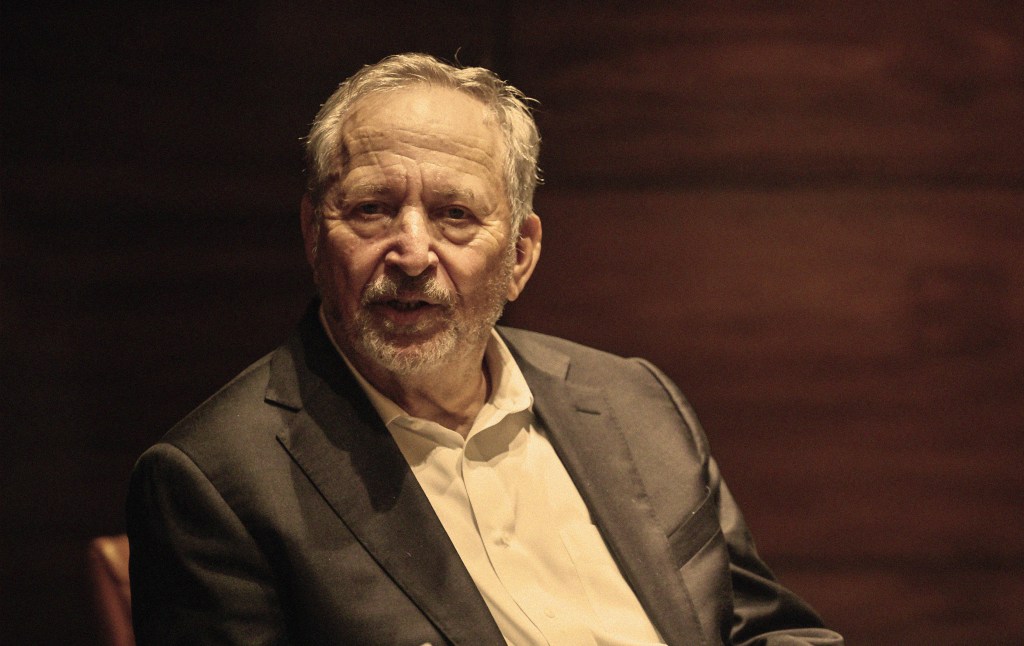
With economists as with Buicks, it isn’t the years—it’s the mileage.
I want to write that Larry Summers is too old to run for the Democratic presidential nomination the next time around—in fact, he is only 70, basically a teenager by the senescent standards of recent American politics: Donald Trump’s next birthday will see him turn the big eight-oh, and goodness knows what kind of North Korean-level parade he’s going to stage for that nice round number. But Summers seems older than he is, and he seems to have developed a slight slur to his speech that has the ring of the cruise-ship buffet line about it, a slight tic that was on display during a recent conversation with the Harvard Business Review podcast crew—a conversation that laid bare another, more serious political deficiency for Summers:
He is too smart to be the Democratic nominee in 2028.
Young Zohran Mamdani and Alexandria Ocasio-Cortez do not have that problem, and neither does youthful 50-something Gavin Newsom, who seems to remain in a perpetual state of being (like another famous Californian) tanned, rested, and ready, albeit in his case that’s ready to say something stupid. Summers, the poor wretch, seems to spend a fair amount of time thinking about things—and if there is anything we have learned in the past decade, it’s that there is no political future in that.
The former treasury secretary and Harvard president retreats into business-school banalities from time to time (“smart businesses are going to maintain flexibility”) and sometimes falls into talking his book (he is selling the notion that AI is going to be the most important technological development of his lifetime, which is not an entirely surprising view coming from a man who sits on the board of OpenAI) but his economic views are generally sound, and he is surprisingly good at communicating them—I write surprisingly because he is a creature of academia and politics, where intellectual clarity goes to die. He is a guy who can explain to a general audience what an inverted yield curve is, why it matters, that it is a symptom of underlying economic assumptions and not a cause of economic change in and of itself—in only a few lines. It shouldn’t be such a remarkable sensation, but it is, to think: “Oh, here’s someone who knows what the hell he is talking about.”
Summers also seems to get the Democratic political moment—which is, I assume, why he gives no indication that he is running for anything. The Democrats have invested far too heavily in an increasingly narrow and exclusive (exclusive being the last thing you want to be if you’re running for office) model of identity politics and, as Summers observes, in the politics of envy. He insists on the unfashionable truth that the phenomena that made billionaires of Bill Gates and Jeff Bezos were, on the whole, better for the people of the United States, who also were enriched by the businesses those men built and the innovations they brought to market. That the Democrats are so focused on economic resentment rather than economic aspiration is particularly bananas at this particular juncture in political history, when their party, once dominated by farmers and blue-collar workers, has overtaken the Republicans as the Alex P. Keaton party—the natural political home of educated, affluent, upwardly mobile urban and suburban professionals.
The Democrats have long relied on identity politics for African Americans, Asian Americans, Latino Americans—what they need to develop is an identity politics for Audi Americans. As Barry Goldwater once put it in a less happy context, you hunt where the ducks are.
The Democrats probably aren’t going to get a lot of Buckley-Reagan conservatives into their tent beyond the ones they’ve already got—and they don’t need to. I myself am a social conservative, but my positions are minority positions, and it should not be too hard to articulate an approach to public affairs that is attractive to those who do not share (or who actively dislike) the typical Republican approach to the so-called social issues, who do not share the GOP’s increasingly rural-to-exurban orientation and its identification with voters who are less educated and less affluent, who do not despise American cities and the people who live in them, who do not hold our universities—and Silicon Valley, and Wall Street, and Hollywood, and the notion of decent governance itself—in utter contempt, who do not have an ideological objection to paying a little more in tax to help put the government on stable fiscal footing, who understand the value of trade and global engagement, who probably don’t read The Economist but who wouldn’t find much to object to in its pages, etc.
And what are the Democrats talking about? The dolt in New York whose big idea is Soviet-style state grocery stores.
Comrade Larry does not fit very comfortably into that particular Diego Rivera mural. He has something to say, but it is not clear that he has anyone to say it to—or that the Democrats have been beaten badly enough to hear sense at all.

















